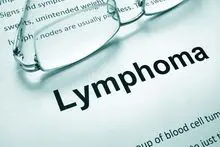Misdiagnosis of Lymphoma

Being diagnosed with cancer is a scary experience. Lymphoma is a type of cancer that occurs in the blood and has an impact on a person’s lymphatic system. The lymphatic system plays an important role in regulating the body’s immune system, which is why lymphoma can be difficult to treat, particularly after it has spread and worsened in cases of lack of timely treatment.
According to the American Cancer Society, about 731,000 people in the United States either have lymphoma or are in remission. While some kinds of lymphoma have high rates of success in treatment, other forms of the disease are more deadly.
Unfortunately, some patients are unaware of the fact that they have lymphoma because their doctor failed to diagnose it. This is especially devastating due to the high success and survival rates in treating some forms of lymphoma.
If your doctor failed to diagnose your lymphoma, or you experienced a delay in treatment due to a missed diagnosis, you may be able to collect compensation for your damages. In either of these cases, you should speak with an experienced New York City medical malpractice attorney as soon as possible.
Two Types of Lymphoma
The American Cancer Society explains that there are two primary forms of lymphoma.
Hodgkin lymphoma – Hodgkin lymphoma, which can also be referred to as Hodgkin’s disease, is frequently easier for doctors to detect, as it generally presents with characteristics that allow doctors to rule out other health conditions. Specifically, patients with Hodgkin lymphoma will present with cells known as Reed-Sternberg cells. These cells are quite large, and they appear in tissues that have Hodgkin’s disease. Unlike non-Hodgkin lymphoma, Hodgkin lymphoma has a high cure rate.
Non-Hodgkin lymphoma –The non-Hodgkin form of lymphoma is far deadlier than Hodgkin lymphoma. When a patient develops non-Hodgkin lymphoma, their white blood cells start to mutate. From there, the mutated cells continue to divide and multiply and eventually spread throughout the body. When the white blood cells move to the various parts of the body, they enter the lymphatic system and can cause widespread damage.
What Are the Symptoms of Lymphoma?
Patients with lymphoma can experience a variety of symptoms. Unfortunately, as with many forms of cancer, the symptoms of lymphoma can mimic those that frequently appear in other diseases.
Symptoms of lymphoma can include night sweats, fever, difficulty breathing, unexplained weight loss, tiredness, swelling in the lymph nodes, chest pain, a persistent cough, and pain or swelling in the abdominal area.
Diagnosis of Lymphoma
Doctors can use a variety of tests to diagnose lymphoma. When they suspect a patient may have lymphoma, they can order a biopsy. For example, if a patient has a swollen lymph node, a doctor may request a needle biopsy of the lymph nodes to determine if cancer cells are present.
A biopsy is particularly necessary for the diagnosis of non-Hodgkin lymphoma, as it is the only definitive method for obtaining a non-Hodgkin lymphoma diagnosis. If a biopsy confirms that a patient has non-Hodgkin lymphoma, doctors commonly follow up with a biopsy of the patient’s bone marrow so they can determine whether the lymphoma has spread that far.
There are more options for the diagnosis of Hodgkin lymphoma. For example, doctors may be able to detect the Hodgkin’s disease by conducting blood tests, CT scans, MRIs, and x-rays. These tests can allow doctors to scan for the presence of Reed-Sternberg cells in a patient’s blood, bone marrow, or other parts of the body.
Treatments for Lymphoma
Depending on which form of lymphoma a patient has, doctors may prescribe various types of treatment. In some cases, doctors may even determine that a patient doesn’t require treatment. Instead, doctors will simply monitor the lymphoma to make sure it doesn’t cause symptoms or spread to other parts of the body.
In other cases, doctors will prescribe more aggressive treatments, such as radiation, chemotherapy, and perhaps even a stem cell transplant. Doctors may also place patients on certain medications designed to boost their immune system and help them fight the disease.
A prompt diagnosis is important to improve a patient’s chances of beating lymphoma and making a full recovery. Because lymphoma can range from very curable to extremely deadly, it’s critical for doctors to give an accurate diagnosis.
Doctors should never dismiss a patient as being “too young” or not within the correct demographic to have lymphoma. These types of mistakes can prevent a patient from getting the life-saving treatment they need to make a full recovery.
Talk to an NYC Medical Malpractice Lawyer About Your Case
If you have been the victim of a missed diagnosis for lymphoma, you may be able to obtain money damages for your pain and suffering, medical bills, lost wages, and other expenses. It’s important to discuss your case with a New York City medical malpractice lawyer.
Sources:
- http://www.nlm.nih.gov/medlineplus/hodgkindisease.html
- http://www.cancer.org/cancer/non-hodgkinlymphoma/detailedguide/non-hodgkin-lymphoma-diagnosis

